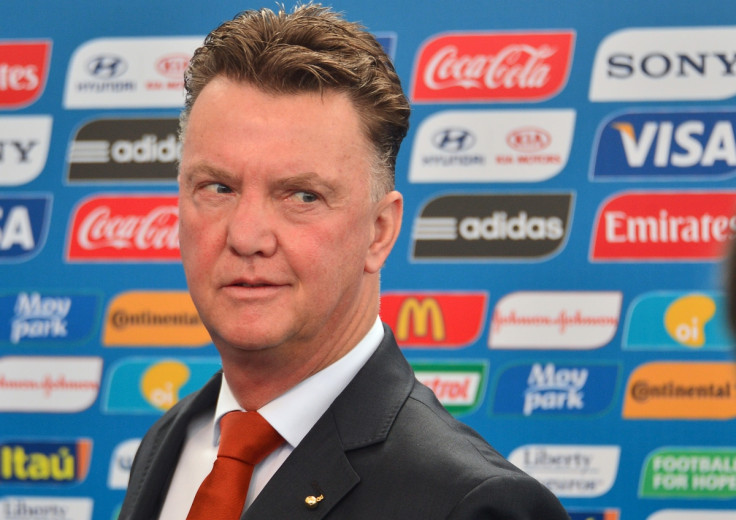Louis van Gaal, a Barca Fan's View: Man Who Gave Us Xavi and Iniesta is Perfect for Manchester United

"Thank you to Louis van Gaal, for showing the courage necessary to gamble on a talent that only he could see. He began building this historic Barça side, which I have been privileged to be part of. My heartfelt thanks."
Those were the words of Víctor Valdés as he bade farewell to Barcelona last week with a letter of gratitude to the supporters, the club and its various managers, starting with the newly installed Manchester United manager.
Many Barcelona fans think the same. Van Gaal was one of the principal architects of the best Barcelona teams in history, and even though his two spells at Camp Nou weren't as successful as we all hoped, we owe him a lot.
His arrival at Manchester United has many similarities with the period when Barcelona hired him, back in 1996. After 8 years with Johan Cruyff (the longest period a manager has ever coached Barcelona), the president Josep Lluís Nuñez couldn't hire Louis Van Gaal and engaged Bobby Robson instead. He was a true gentleman and won three trophies, but soon understood that winning wasn't enough at Barcelona: during an 8-0 victory over Logroñes, the supporters jeered the team. They needed more. They wanted the team to win, and play well - and if there was one team doing that at the time, it was Ajax Amsterdam.
Louis Van Gaal arrived the following season and it looked like a safe bet. He had built one of the best teams in history and he was from the Netherlands, a country that has shaped Barcelona's football culture.
After the genius of Cruyff and the savoir faire of Robson, Van Gaal soon proved he was different. He was direct, almost blunt, authentic and espoused a philosophy rooted in discipline and professionalism. This meant that the balance of the team subsumed everything: fans, journalists and stars. It didn't matter if your name was Rivaldo, Stoichkov or Riquelme.
In this interview in 2002, when the Dutchman returned to Camp Nou for a second (and very short) spell in charge of Barça, he laid out his ideas by saying: "I am too democratic to be a coach.
"For me, a star is a player that makes his team play better. Football is a team-play of eleven players, not one. I like stars, but Rivaldo or Ronaldo are not stars. To me, stars are Keane, from Manchester United; Beckham, because he plays for the team; and Zidane, from Real Madrid.
"All players must be at the service of the group. A lot of players think they are stars, and this is a problem I'll try to solve; and if the affected player is not open to corrections, then he is out".
The irony is that it was Van Gaal himself who broke the dressing room balance with his "Dutchification". Maybe he thought that shipping in compatriots, and the players who brought him success at Ajax, would replicate glory at the Camp Nou.
In total, during his two spells, Van Gaal bought eight Dutch players: the De Boer brothers, Kluivert, Cocu, Reiziger, Hesp, Zenden and Bogarde. Years later, under Rijkaard, it was clear that Van Gaal didn't bring the key player for the 4-3-3 formation to work: Edgar Davids.
FC Barcelona (Catalonia's army, as Bobby Robson once called them) is a very complicated club. The lines between fans and journalists are very narrow, everything counts, and Van Gaal soon clashed with both supporters and the media. If you add poor performances and consecutive failings in the Champions League, the outcome was never likely to be good.
The Spanish press were quick to seize on van Gaal's failings when they emerged. Doctor Jekyll/ Mister Van Gaal, Farewell to Van Gaal, the Gruffiest Coach and A team against Nature were some of the headlines in the Spanish press when it all began to unravel.
Van Gaal's time at Barcelona yielded two La Liga titles, one Copa del Rey and one Uefa Super Cup, a haul which pales against Pep Guardiola's achievements. Yet his legacy goes beyond titles. He was regularly seen watching Barcelona B games and one of his dreams, he once said, was to win the Champions League with 11 academy players.
He was the one who believed in Puyol, Xavi, Valdés and Iniesta, taking a gamble on a generation which proved that, for a football fan, there is nothing better than making history with a home-grown, unmistakable identity. The culture which made Barca into the best team in the world is based on van Gaal's teachings, and we will always be in his debt.
Marc Vargas is social media editor at IBTimes UK. He has previously written for Catalan newspapers and magazines including La Vanguardia.
© Copyright IBTimes 2025. All rights reserved.






















